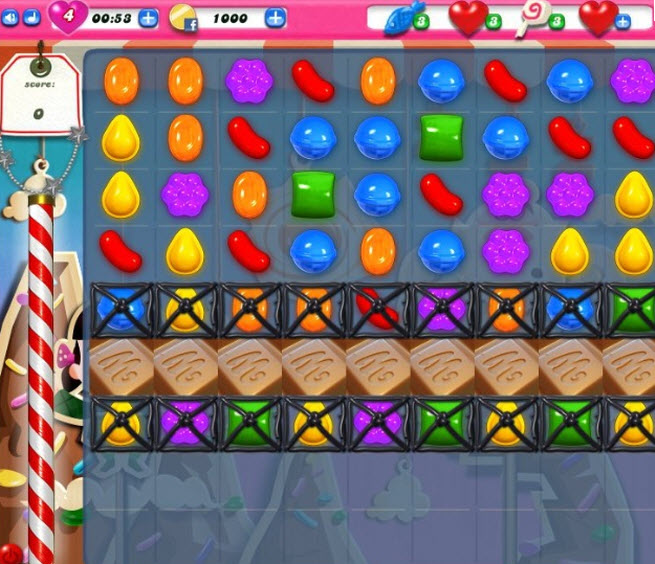However, despite that the USPTO may have let one slip by, even though King.com is indeed close to “trademarking” candy, it’s not quite there … and this last step is critical. The application will soon move into a 30-day publication period. When an application is “published,” the USPTO is essentially saying, “Hey, world, we looked at this application, and it looks OK to us, so we’re about to register it … if you have any problem with that, now’s your time to let us know.” In other words, for all those developers who are feeling helpless by this news, all is not lost. The application can still be blocked. Who can oppose it? “Any person who believes that he or she would be damaged by the registration of a mark on the Principal Register.” That’s a pretty broad description and is bound to include any developer who has released or plans to release a game involving candy who wants to use the descriptive word candy in the name.
In the meantime, developers are expressing concern that King.com is sending out cease-and-desist letters and sending takedown notices to app stores based on either its pending U.S. application or existing European registration. They’re feeling beat up upon and helpless.
They are neither.
The great thing about the law is that it’s not one-sided. If a developer receives a cease-and-desist letter and thinks it is baseless, the developer can always (a) ignore it; (b) respond explaining why it is baseless; or (c) respond in an incredibly snarky and aggressive tone as to why it’s baseless. If a developer is the subject of a takedown notice on an app store, the particular shop should also give the developer an opportunity to respond and argue against the basis of the takedown.
Developers need to understand that, while an expensive, bloodsucking lawyer like yours truly may help in this process, we are not always necessary (you don’t need a lawyer to ignore a letter). It all comes down to whether the pushing will ever come to shoving. For King.com to truly prevent developers from using the term candy, it would eventually have to file a trademark infringement suit based on the rights it believes it has. The question developers should ask is whether King.com would take that risk if its rights are shaky. While it may have more money than the average independent developer, it is probably not all that likely to spend the money to file a losing lawsuit.
One final word of warning before I start sounding a little too much like a raging champion of the little guy while turning a blind eye to the plight of the powerful … I’m confident that in many instances, King.com has indeed been injured by the myriad of Candy Crush Saga copycats that have sprung up. To the extent small developers are doing more than capitalizing on a craze and are taking steps to intentionally confuse consumers looking for Candy Crush Saga into buying the developer’s game instead, King.com has a valid reason to be upset. For whatever developers may say about the originality of the gameplay, King.com has done something to create an addictive and extremely popular game and should be able to prevent others from creating knockoffs that lead to consumer confusion. Is registering “Candy” the right way to do it? Probably not, because it may be used to shut down more than the bad actors intentionally creating true confusion.
But it could be a desperate attempt by King.com to do something to curb those bad actors that are indeed out there.
 Jesse Saivar is a partner at the law firm Greenberg Glusker and chair of its intellectual property department. When he’s not watching gameplay clips from Destiny and Titanfall on repeat, Saivar represents a variety of clients in the app and gaming industries with respect to intellectual property protection, enforcement, and licensing.
Jesse Saivar is a partner at the law firm Greenberg Glusker and chair of its intellectual property department. When he’s not watching gameplay clips from Destiny and Titanfall on repeat, Saivar represents a variety of clients in the app and gaming industries with respect to intellectual property protection, enforcement, and licensing.
VentureBeat's mission is to be a digital town square for technical decision-makers to gain knowledge about transformative enterprise technology and transact. Learn More


